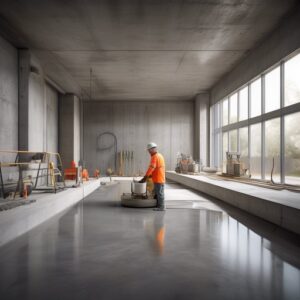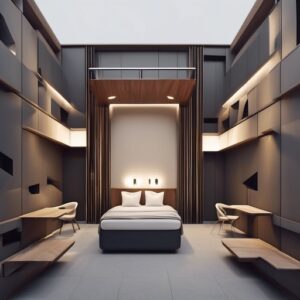When it comes to building structures that stand the test of time, Texas hotels must prioritize materials that offer durability, efficiency, and cost-effectiveness. Among the various construction materials available, concrete ready mix stands out as a superior choice for hotel construction projects. In this article, we’ll delve into three compelling reasons why Texas hotels should embrace concrete ready mix for their construction needs.
Strength and Durability
Concrete ready mix offers unparalleled strength and durability, making it an ideal choice for constructing the foundation, walls, and floors of Texas hotels. In a state known for its diverse climate conditions, including extreme heat and occasional hurricanes, durability is paramount. Concrete ready mix provides excellent resistance against environmental factors such as moisture, temperature fluctuations, and high winds, ensuring that Texas hotels remain structurally sound for decades to come.
Additionally, the strength of concrete ready mix minimizes the risk of structural damage caused by natural disasters or wear and tear over time. Hotels in Texas must be built to withstand the rigors of constant occupancy and heavy foot traffic. Concrete ready mix provides the necessary strength to support the weight of multiple floors, amenities, and occupants without compromising safety or integrity.
Furthermore, the durability of concrete ready mix translates to lower maintenance costs over the lifespan of the hotel. With minimal repairs and upkeep required, hotel owners can allocate resources towards enhancing the guest experience rather than addressing structural issues.
Speed and Efficiency
Time is of the essence in the construction industry, especially when it comes to hotel projects with tight deadlines. Concrete ready mix offers significant advantages in terms of speed and efficiency, allowing Texas hotels to expedite the construction process without sacrificing quality.
Unlike traditional concrete mixing methods that involve on-site batching and curing, concrete ready mix is prepared off-site in specialized facilities and delivered directly to the construction site. This streamlined approach eliminates the need for labor-intensive mixing and reduces construction time significantly.
Moreover, the consistency and quality of concrete ready mix ensure uniformity in the construction process, resulting in precise measurements and reliable structural integrity. This level of efficiency enables Texas hotels to meet project deadlines and open their doors to guests sooner, maximizing revenue potential and gaining a competitive edge in the hospitality market.
Customization and Design Flexibility
While strength and efficiency are essential considerations in hotel construction, aesthetics also play a significant role in attracting guests and creating memorable experiences. Concrete ready mix offers unparalleled customization and design flexibility, allowing Texas hotels to bring their architectural visions to life with ease.
Thanks to advancements in concrete technology, ready mix suppliers can produce a wide range of colors, textures, and finishes to suit the unique design preferences of hotel developers and architects. Whether it’s creating sleek, modern facades or incorporating intricate decorative elements, concrete ready mix provides endless possibilities for creative expression.
Furthermore, concrete ready mix can be molded and shaped to accommodate various architectural styles, from contemporary high-rises to rustic lodges. This versatility allows Texas hotels to differentiate themselves in a crowded market and create distinctive identities that resonate with guests.
Conclusion
In conclusion, the utilization of Texas concrete ready mix offers hotels a multitude of benefits, ranging from unparalleled strength and durability to enhanced speed, efficiency, and design flexibility. By embracing this innovative construction material, hotels can ensure the longevity of their structures, expedite project timelines, and unleash their creativity in architectural design. As the hospitality industry continues to evolve, concrete ready mix stands as a cornerstone for building Texas hotels that exceed expectations and leave a lasting impression on guests for years to come.



